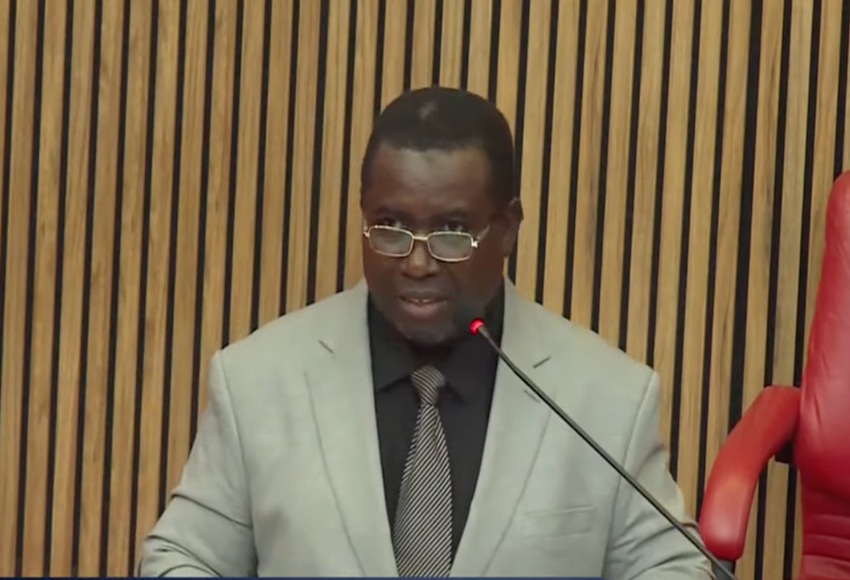President Muhammadu Buhari has ordered the Minister of Finance, Budget and National Planning, Dr Zainab Ahmed, to release the salaries of health workers, including doctors, that were seized while enforcing the no-work, no-pay policy.
Minister of Labour and Employment, Dr. Chris Ngige, confirmed this development when he fielded questions from State House correspondents in Abuja on Thursday.
He said the president has since approved the authority letter to release the funds of the resident doctors for September and October 2021.
The minister, who earlier met behind closed door with President Buhari at the Presidential Villa, said the presidential approval for the releases of the salaries was on compassionate ground and to encourage the affected workers to perform better in their respective places of work.
According to Ngige, the approval covers members of the Joint Health Services Union (JOHESU) who went on strike in 2018.
He said: “The President graciously approved that we pay back some funds, some wages, which we did not pay health workers.
“First, section 43 of the Trade Disputes Act says that when a worker goes on strike, especially those on essential services, the employer can also refuse to pay. That is what they call it the ‘No Work, No Pay Rule’.
“But these health sector workers; doctors, pharmacists, nurses and members of JOHESU, are trying to make sure that we create an equitable environment for them to function.
“As a first step, Mr. President last week directed the Minister of Finance to release the funds of the resident doctors for September and October 2021, which was seized in conformity with the law.
“In the same vein, the approval also covers members of the JOHESU who went on strike in 2018 for three months.
“After the first month, after March, when they couldn’t come back, we asked that their pay be suspended. This is in tandem with the ILO principles at work.
“You have a right to strike, but the employer has a right to stop your remuneration and if possible, use it to keep his enterprise going by taking new hands, where possible, especially in essential services.
“So, that same money for 2018 April and May, Mr President has again approved that the Finance Minister refunds or re-imburses them on compassionate grounds.
“This is predicated on the grounds that this group of workers has been showing a lot of dedication and concern to the COVID-19 and that their Hazard Allowance for 2021 had remained what it was before.
“So, on compassionate grounds and…we agreed that they should be getting this money to keep their morale high. We’re not yet free of COVID-19 and the new mutants, we need to do everything to keep the health workers here happy.
“In the same vein, President Buhari has also directed us to conclude the discussions on the other allowances for the health workers so that they can enjoy it anytime from now.’’
The minister announced that the meeting of Presidential Committee on Salaries and Wages would be convened on Dec. 17 to ratify the new pay hazard structure for health workers.
He disclosed that the president had also directed relevant agencies to conclude the discussions on the other allowances for the health workers to uplift their standard of living quality.
The minister emphasised that efforts must be made to ensure industrial harmony in the country to allow all sectors to operate well.
Reacting to the threat by the Academic Staff Union of Universities (ASUU) to resume strike over non-implementation of the 2020 Memorandum of Action (MoA) reached with the union, the minister said the union should educate its members on the quantum of money the federal government had already paid to them.
He maintained that ASUU had no moral justification to embark on another strike because the federal government had already made some huge payments to address some of their demands.
According to him, the 2009 agreement, which is the other dispute that the union has, is still at the level of Collective Bargaining Agreement (CBA).
“On the side of ASUU, you will also notice that there’s been some brewing crisis. ASUU and their direct employer, which is the Ministry of Education, there’s a tango and the tango is running round the MoA, the Memorandum of Action signed in 2020.
“Refreshing your minds, they were on strike last year and they were at home for nearly nine months and last December, the President magnanimously gave them a blanket clemency and we paid them their money for the nine months, spanning into January, February of this year.
READ ALSO: Explain what happened to ALGON Chairman when you were the Vice Chair – APC tells Wike
“We gave them back nearly nine months’ pay. After doing that, we also gave them a revitalization fund for N40 billion, early this year, for the revitalization of the university system.
“In the MoA, we agreed that they should get another revitalization this year and by last July, August. The money for revitalization was paid to them, for the university system that were entitled to N30 billion.
“Last week, N22.127 billion was also released to the university system for the unions, workers university system to benefit in consonance with the MoA we signed in December 2020.
“The altercation going on now and for which ASUU is asking their union branches to vote on is that a lot of them don’t know that we have paid this quantum of money.
“Maybe, it has not gotten into the accounts of the people, the persons involved, but I expected ASUU to inform their people, let them know that this is what has happened.
“They also have a grouse with the negotiation of 2009. The 2009 agreement was being renegotiated before Babalakin left and a new committee was set in place,” he added.
He added that the committee had advisors from Ministry of Finance, Ministry of Labor and Employment, Minister of Budget and then Head of Service of the Federation and Salaries, Incomes and Wages Commission, because part of the renegotiation was the renegotiation of the conditions of service.
“So, a lot of the ministries and agencies that served on that committee as advisors did not agree with the content of the agreement they reached. Minister of Education and his ministry did not also agree with that recommendation.
“So as far as government is concerned, those recommendations are still at the level of what we call CBA, bargaining agreement, at the level of the ministry.
“If the ministry agrees, the ministry will send it off to the Presidential Committee on Salaries, which is a high-level body for that, and we’ll look at it, and then advise them. It hasn’t come to the stage.
“Now, that ASUU members and chambers are flexing muscles and saying that government has refused to sign, we’ve not gotten to the level of signing, we are doing an internal committee meeting with the Ministry of Education. So, it’s important that people know what the correct situation is.
“When they finish at Education, they’ll bring it to us in Labour and we’ll forward it to the Finance Committee on Salaries, of which I’m a member and Co-Chair.
“So, it’s not that the government is reneging. It’s important we tell the public that this is the situation.”
On the University Transparency Accountability Solutions (UTAS), designed by ASUU, the minister said the proposed salary payment platform had not been perfected to obtain the National Information Technology Development Agency (NITDA) compliance certificate.
“NITDA wrote just last week to give their results on the tests they have done, that those two broad categories of tests, (user acceptance test, which involves NUC and the universities vice chancellors, bursars, and registrars), that has been done.
“The second group of tests is what they call integrity test; they have to look at the integrity and usability of that system, where are the loopholes?
“The third one is the vulnerability test. Many systems are hacked into. What potential is there as presently developed, and how they can offer their advice for the protection?
“So, these are the issues there and they have written officially and I’ve copied ASUU with the result of the test, that for now, the system in this present state, cannot be given NITDA compliance certificate, but they went on to enumerate things that can be done to make it a system that will be robust.”
Ngige said he also briefed President Buhari on bilateral agreements between Nigeria, the United Arab Emirates (UAE) and Qatar on employment.
According to the minister, Nigeria wants to formalize labour migration policy so that Nigerians in the Middle Eastern countries will be guaranteed descent work.
He said: “So, we have some emerging issues that are both of national and internationalization importance and local.
“Internationally, we have some bilateral agreements on employment with the Republic of Qatar and with the UAE. That of Qatar is ready for us to sign the bilateral agreements. So, I’ve come to brief Mr. President on that.
“We want to use it to formalize Labour migration policy, so that Nigerians who are there, about 7,000 of them, in different spheres of work, will be assured of decent work.” (NAN)
Advertisement






